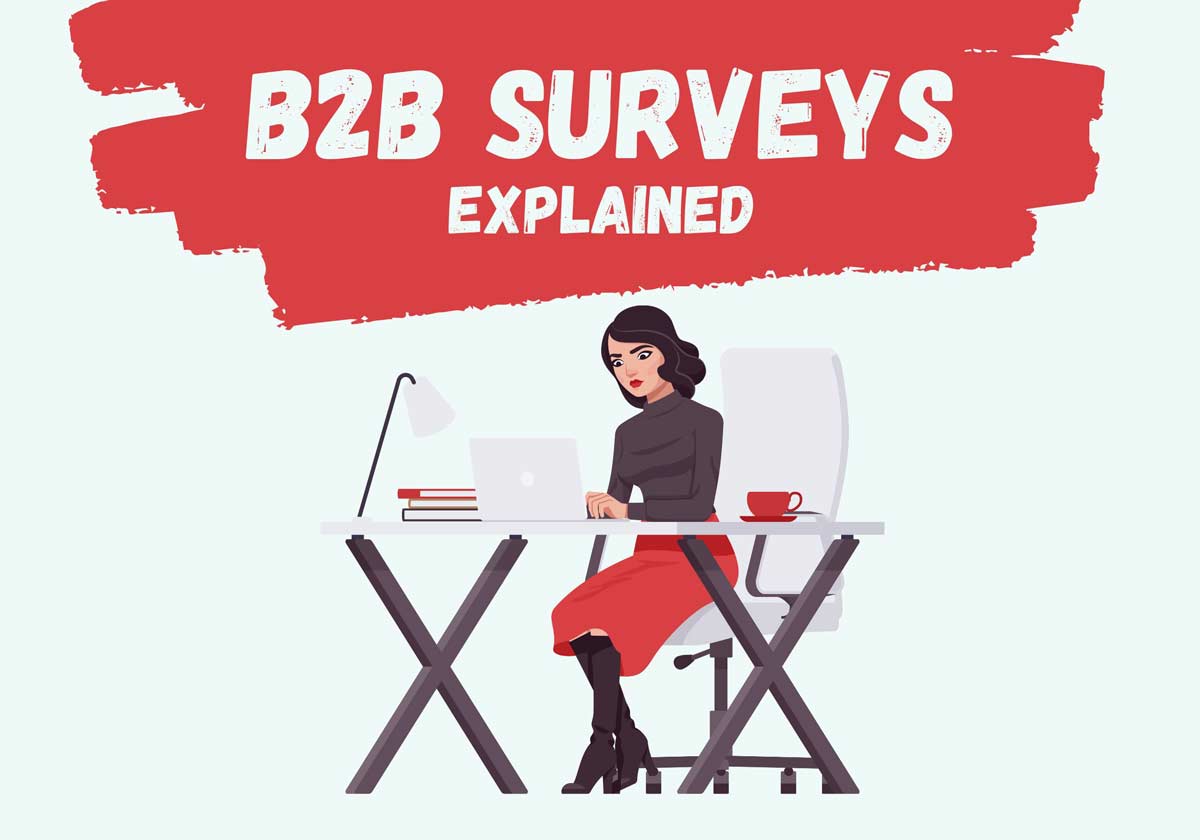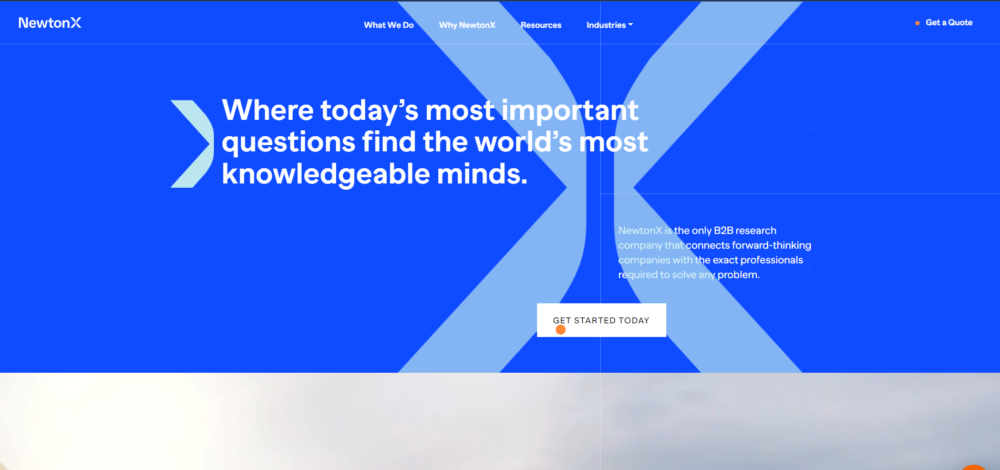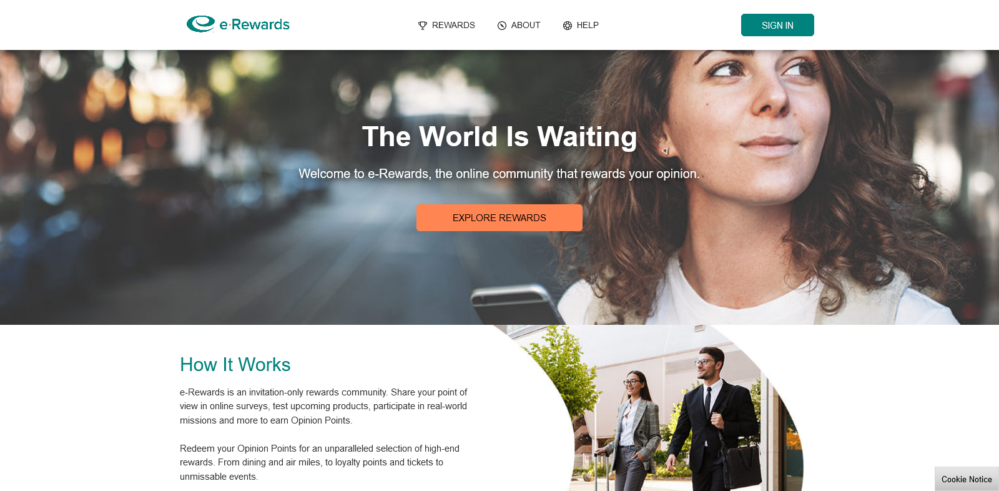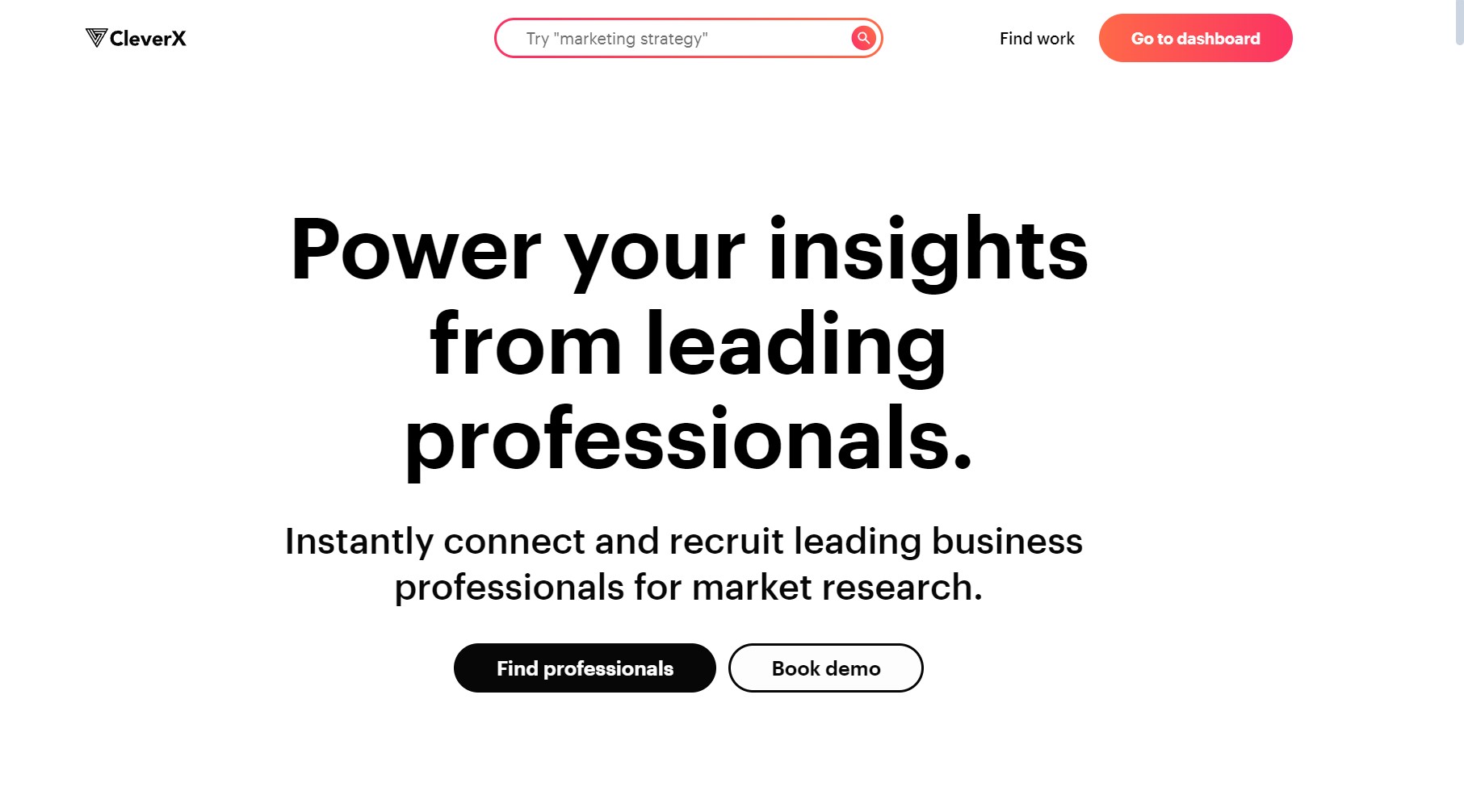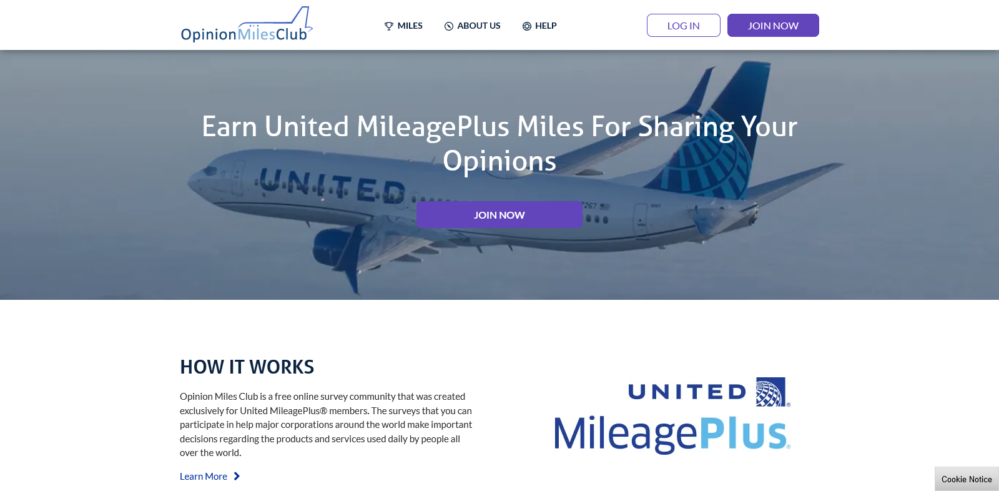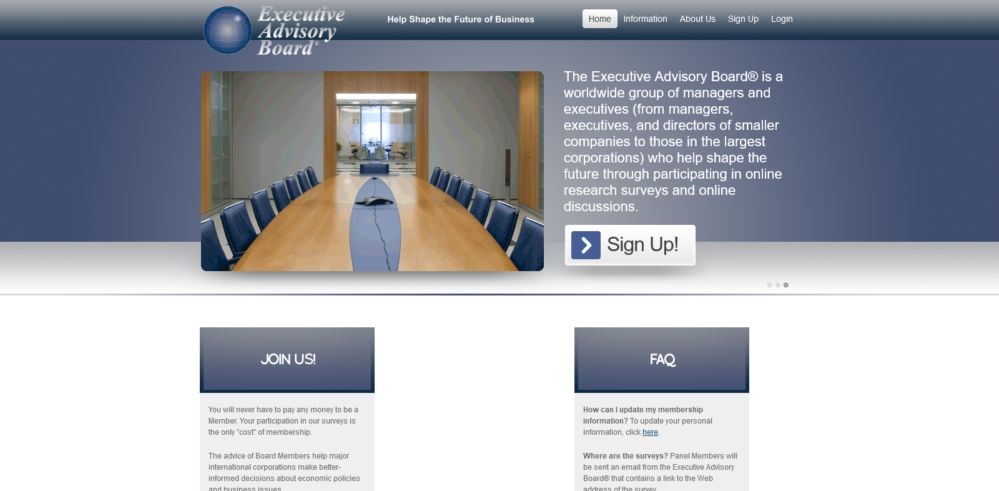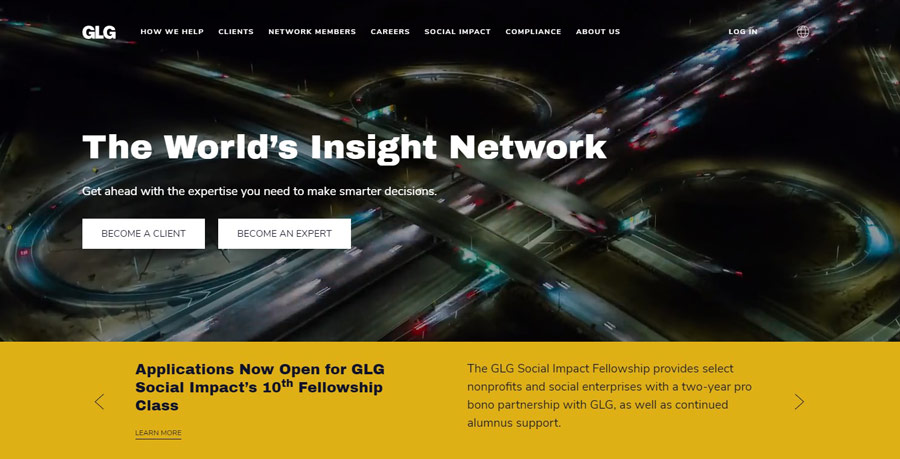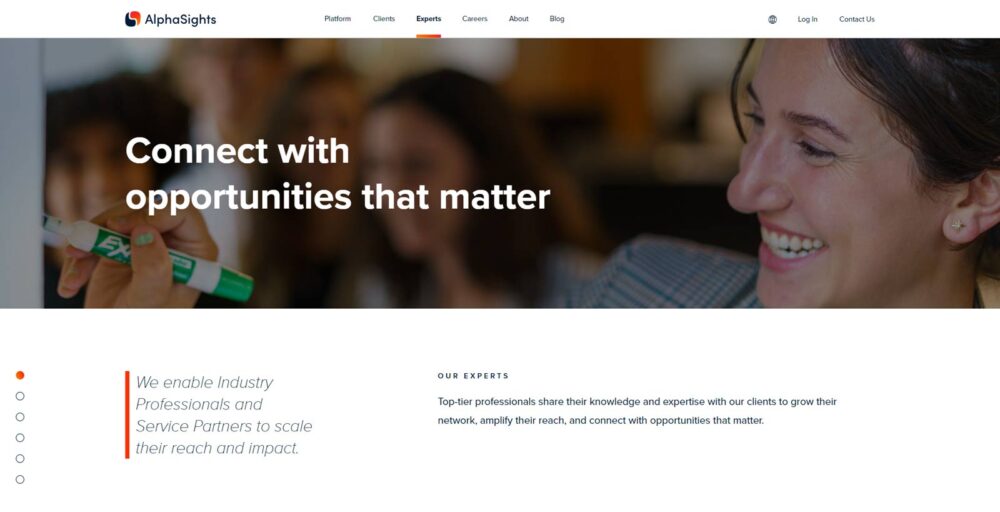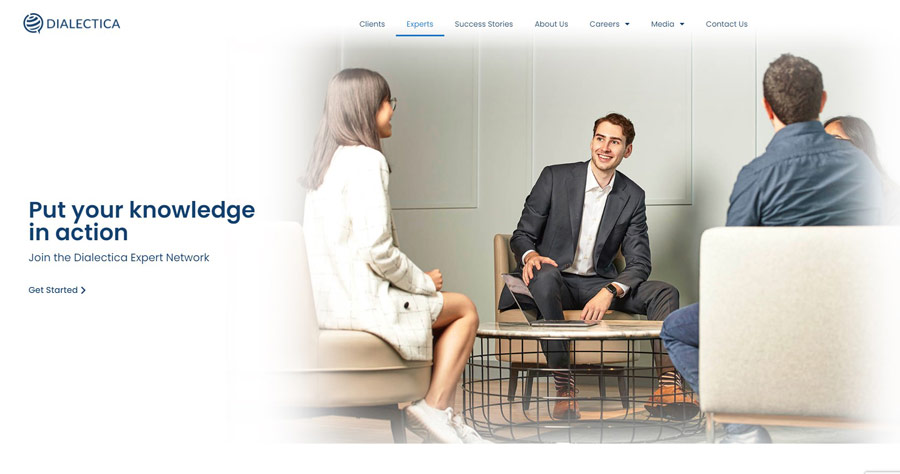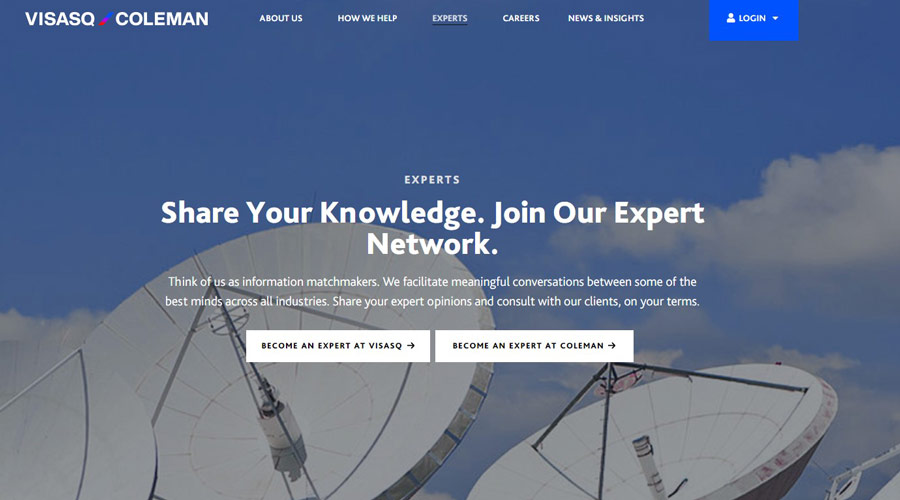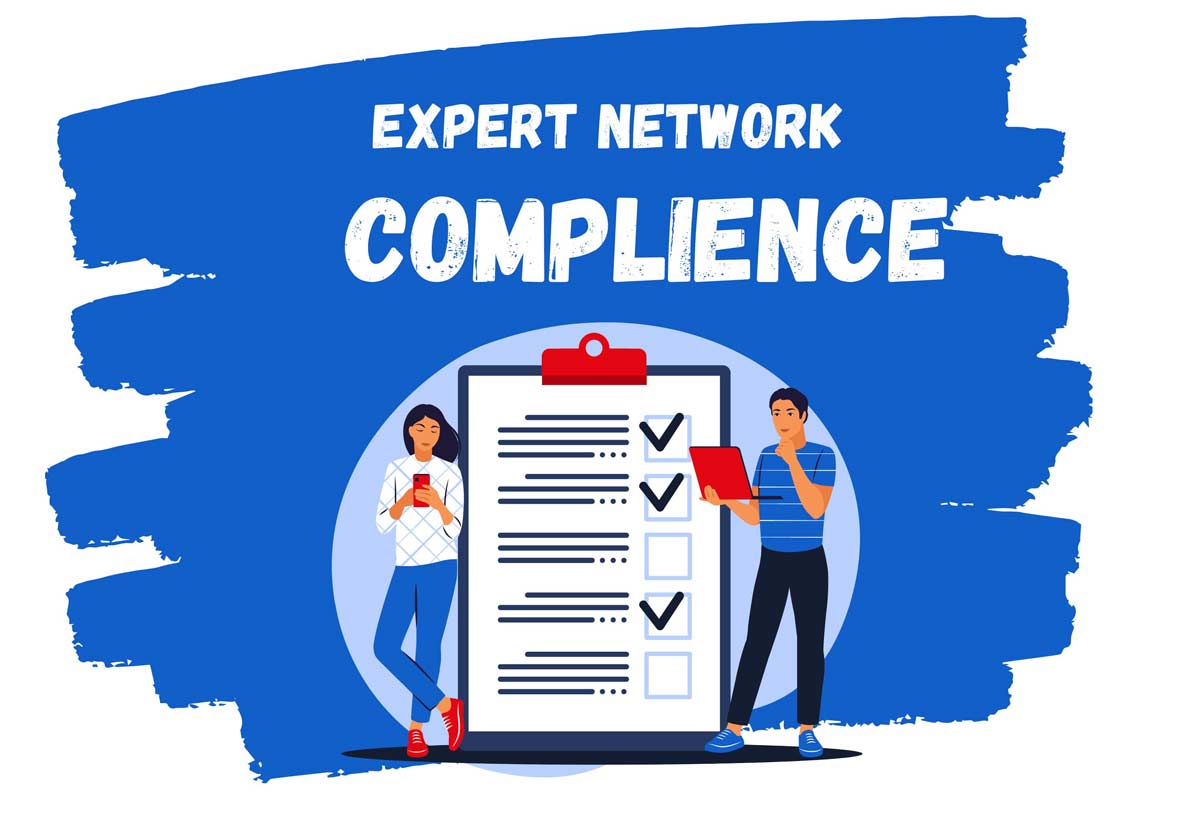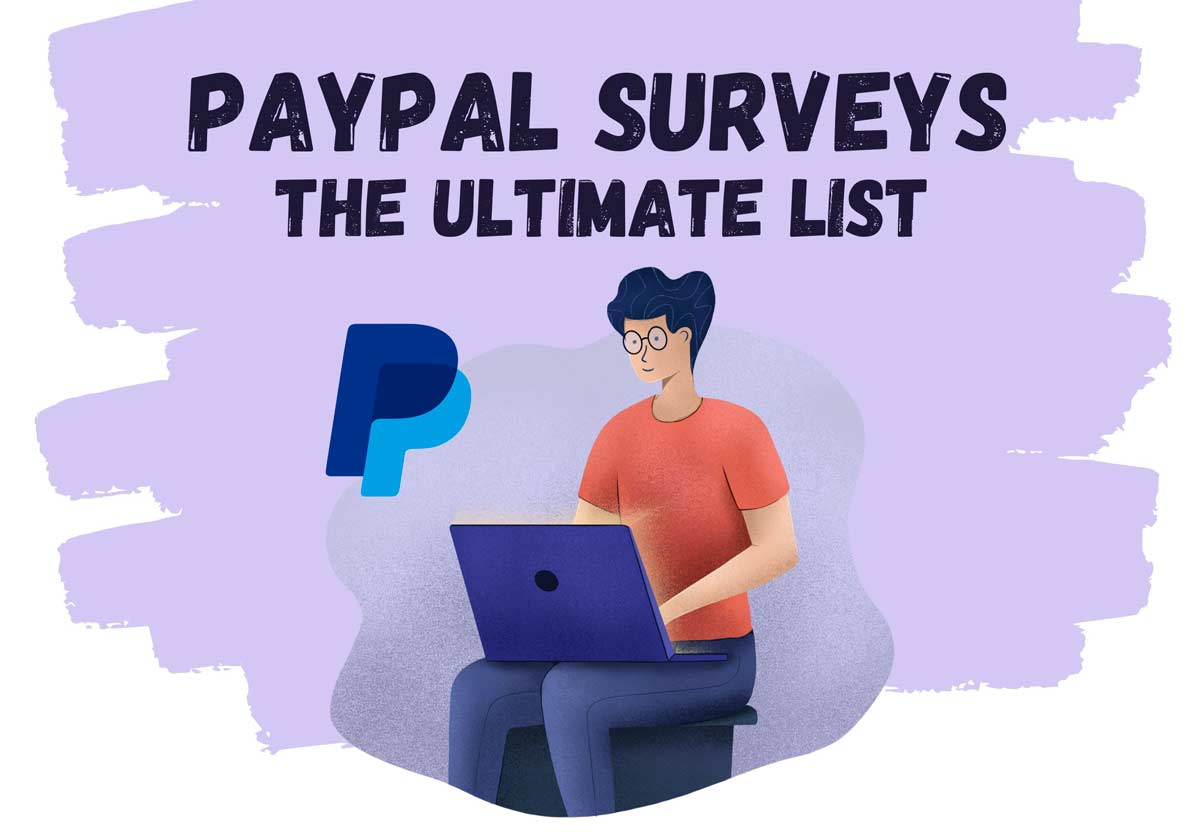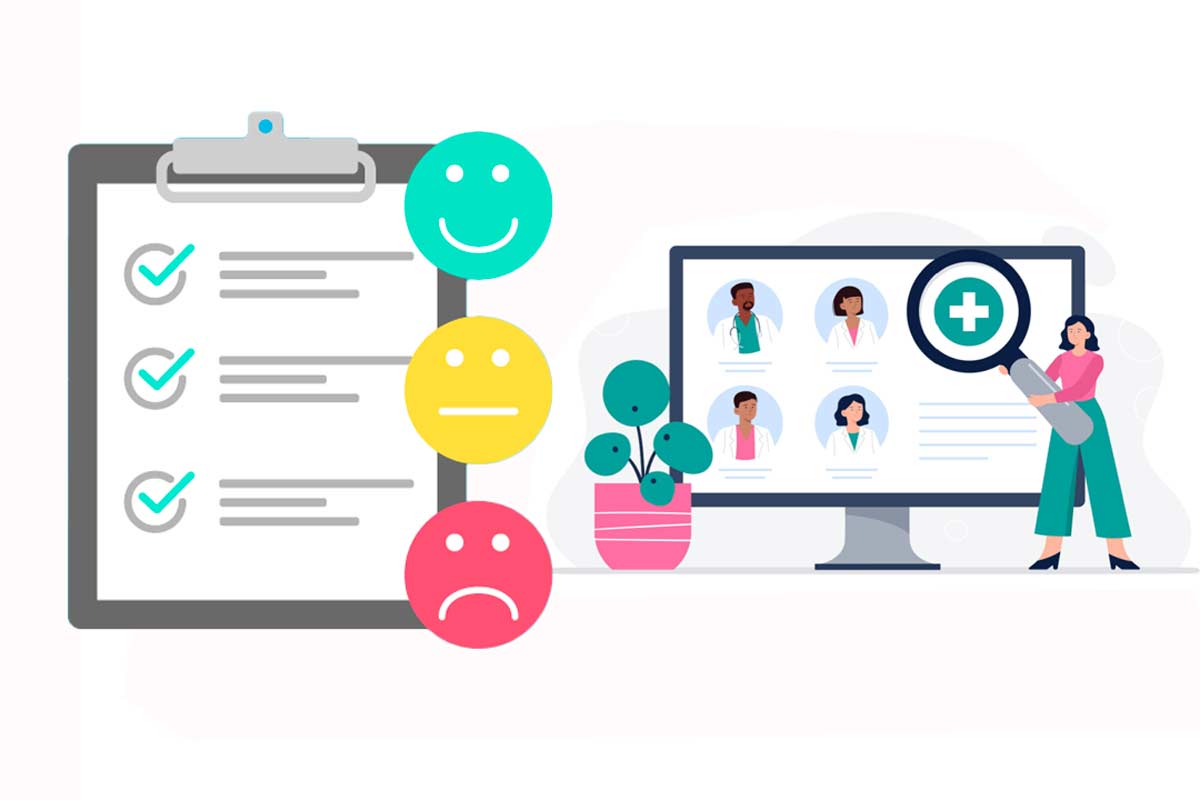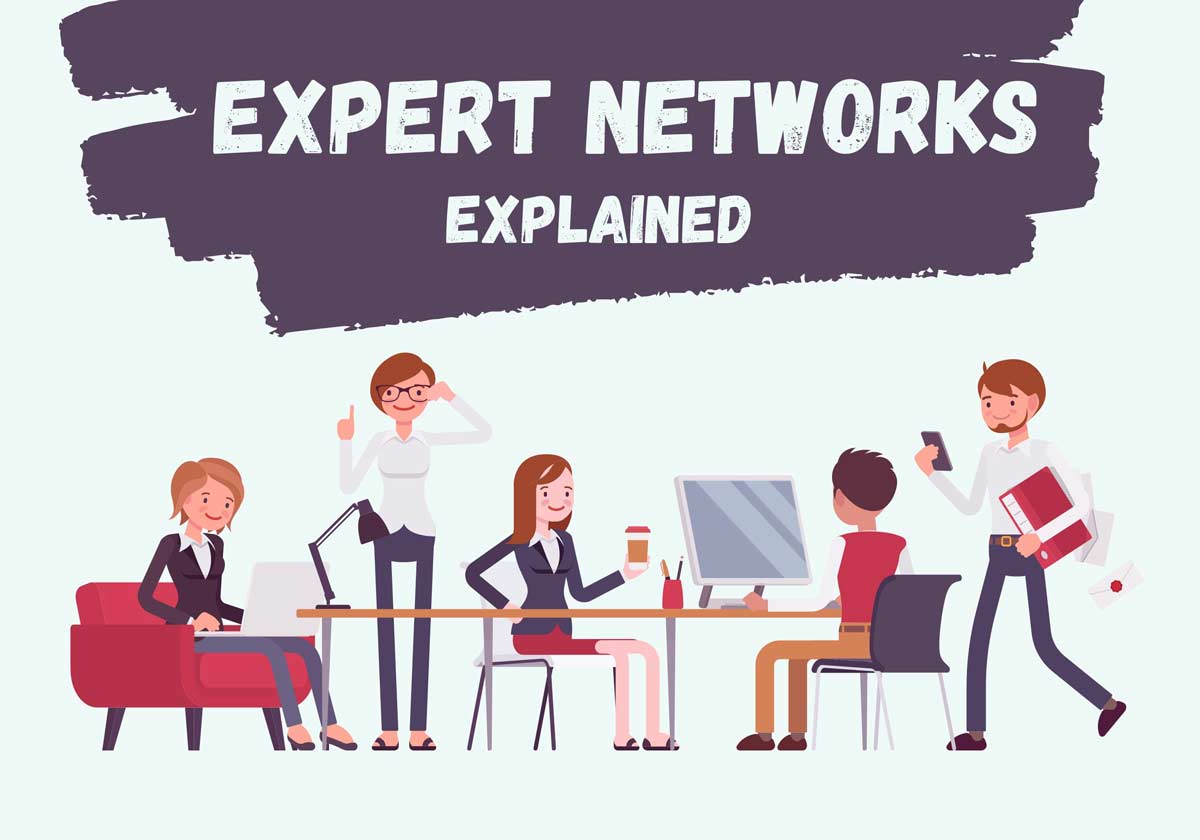Answering B2B surveys is often advertised as a great side gig to earn extra income, paying much more than standard consumer surveys. Is this really the case? In this article, we’ll go through all the different aspects of B2B research, explaining how the industry works, and how you can leverage your industry knowledge to earn rewards in your spare time.
Content
Types of B2B respondents
We can divide the respondents used in B2B surveys into 3 main categories:
- Entry-level B2B
- Mid-level B2B
- Executive-level B2B
Entry-level B2B Respondents
This category of B2B respondents constitutes a broad selection of workers from dental assistants and customer support personnel to truck drivers and factory workers. Why are these groups interesting for B2B market research? While they might not have business decision-makers’ powers, they are often using expensive pieces of equipment and/or software to do their job. This means they can give feedback and provide valuable opinions on B2B products and services.
Sites to sign up: If you’re an entry-level B2B respondent we recommend signing up for one of the highly-ranked consumer survey sites. Through these sites, you’ll get access to a mix of consumer and B2B surveys.
Mid-level B2B Respondents
This group of B2B respondents are often described as “B2B Professionals” and include job roles such as physicians, lawyers, engineers, mid-level managers and supervisors.
Sites to sign up: If you’re a mid-level B2B respondent we recommend signing up for one of the more specialized B2B panels. Through these more specialized panels for business professionals, you’ll get a more streamlined B2B experience when taking surveys.
Executive-level Respondents
This is a layer of B2B respondents which includes the top management of a company, including C-level decision makers as well as chairmen and board members. For this category, your eligibility to participate in surveys is often linked to the size of the company you’ve worked for.
Sites to sign up: If you’re an Executive-level B2B respondent we recommend signing up for an Expert Network or a Physician Panel if you’re a doctor. Through these sites, you’ll get access to projects tailored to your exact line of work.
The biggest challenge with B2B research
The biggest challenge with B2B research is verifying research participants. Online market research is fraught with fraud, with a constant stream of respondents attempting to trick the system by providing false information. For example, anyone can claim they are a CEO by joining a standard consumer panel since the profiling information is self-reported.
While survey companies try to implement more advanced digital fingerprinting and trick questions to combat dishonest respondents and suspend accounts, it’s proven very hard to eliminate fraud. This has particularly negative consequences for B2B research since the sample sizes are often small and focused on niche audiences.
Due to all the fraud associated with online market research, expert networks are taking a larger and larger share of B2B research. Moreover, since expert network members often are pre-verified through their LinkedIn profile and phone conversations, Expert Networks can offer an extra layer of security compared to standard B2B panel providers.
With expert networks expanding on their B2B survey offering in addition to phone consultations, we expect traditional market research panel providers to lose market share in the mid-level and executive-level categories of B2B research.
Main types of B2B research
B2B research can take many forms, depending on the specific goals and objectives of the research organization. Some common types of B2B research include:
1. B2B Market research
Market research is used to gather information about a particular industry or market. It can include both primary research (such as surveys or interviews) and secondary research (such as analyzing data from industry reports or government statistics).
2. Competitor Analysis
Competitor analysis studies the strategies, strengths, and weaknesses of a company’s competitors to inform the company’s strategic decision-making. This type of research can include both quantitative and qualitative data.
3. Customer Satisfaction
Customer satisfaction research measures a company’s customers’ satisfaction with its products or services. This type of research can include quantitative and qualitative data and can be conducted through surveys, interviews, or focus groups.
4. Supply Chain Analysis
Supply chain analysis is analyzing a company’s supply chain to identify areas where the company can improve efficiency and reduce costs. This type of research can include studying the company’s suppliers, logistics, and other aspects of the supply chain.

Types of companies doing B2B research
The largest B2B market research providers offer a wide range of services to businesses looking to gather information about their customers, competitors, or the broader market. While some are focused on data collection such as B2B surveys, others offer more sophisticated analytical B2B solutions.
10 examples of B2B research providers in different areas:
- GLG: A leading expert network provider, connecting consultancies and investors with business professionals all over the world.
- Gartner: A leading provider of research and analysis on technology and IT trends.
- Forrester Research: A leading provider of research and analysis on technology, marketing, and customer experience.
- IDC (International Data Corporation): Offering a wide range of market research and consulting services to businesses in the technology and IT industry.
- Frost & Sullivan: A leading provider of market research and analysis on technology, healthcare, and energy.
- Dynata: A market research provider specialized in online sampling, using proprietary panels to access B2B respondents across the world, including loyalty programs tied to airlines and hotels.
- McKinsey & Company: A leading provider of management consulting services to businesses.
- Nielsen: A global measurement and data analytics company that provides market research and consulting services to businesses across various industries.
- Accenture: A leading provider of management consulting, technology, and outsourcing services, they also have a dedicated research team to provide market insights and analysis.
- Schlesinger Group: Specialized in B2B data collection, they have several market research communities where respondents can sign up.
How do I get started earning money taking B2B surveys?
Companies such as Nielsen, Bain and Accenture often use a layer of suppliers which are specialized in identifying and verifying B2B respondents. On HuginX you’ll find a number of specialized B2B suppliers offering cash in return for your opinion on different B2B topics. The process is similar to signing up for consumer survey sites, but you’ll need to expect extensive checks in order to qualify for surveys. Here are our top choices when it comes to sites that are streamlined to offer online B2B surveys:
In addition to the above, you’ll also be able to earn money from participating in B2B surveys from expert networks. These firms are focused on one-hour consultation calls, but they also help their clients with B2B research, sending out online survey invitations to their network members. Here are our recommended expert networks:
How reliable is online B2B market research?
The reliability of online B2B market research can vary depending on several factors, including the research methodologies used, the sample size and population, and the expertise and experience of the research provider.

Online B2B research is quick and efficient
One of the advantages of online B2B market research is that it allows businesses to gather a large amount of data quickly and efficiently. Online surveys, for example, can be distributed to many B2B respondents in a short time, and the data can be analyzed using statistical methods to identify trends, patterns, and insights.
Hard to verify real B2B respondents
A major challenge when it comes to B2B respondents is the quality of the data. It can be really difficult to verify that business professionals are who they claim they are when the flow of respondents is 100% automated. Many companies have implemented manual checks to combat fraud with the consequence of accounts being suspended.
A mix of methodologies often works well for B2B research
Another factor to consider is the research methodologies used. For example, some online research methodologies, like online surveys, have limitations and biases, such as non-response bias. To mitigate this, it is important to use a mix of research methodologies, including online surveys, online panels, online interviews, and online experiments.
It’s also important to consider the expertise and experience of the research provider. B2B market research providers with years of experience and a proven track record are more likely to provide reliable data and insights.
What are the best B2B sources?
Many online market research sources are available to businesses looking to gather information about their customers, competitors, and the broader market. Some of the best online market research sources include:
- Government websites: Many government websites, such as the US Census Bureau and Eurostat, offer a wealth of data on economic indicators, population demographics, and other important information that can inform market research.
- Industry associations and trade organizations: Many industry associations and trade organizations offer market research and data on their respective industries, networking opportunities, and other business resources.
- Surveys and online panels: Online survey providers such as Dynata and NewtonX are great options when it comes to collecting data from many people quickly and inexpensively.
- Expert Networks: Expert Networks such as GLG, AlphaSights and ThridBridge effectively connect businesses and investors with subject matter experts in any type of industry.
- Social media and online forums: Social media platforms like Facebook and Twitter, and online forums like Reddit and Quora, can be great sources of customer feedback and information on industry trends.
- Online databases: There are also many online databases like IBISWorld, Market Research.com, and MarketLine that provide industry reports, market research, and data on specific industries or markets.
How much can I earn from taking B2B surveys?
Many B2B surveys are conducted online and take anywhere from a few minutes to an hour to complete. Some survey providers offer monetary compensation for completing their surveys, such as cash or gift cards, while others may offer non-monetary rewards, like contest entries or points redeemable for cash or gift cards. The compensation rate usually ranges from a few cents to a few dollars per survey, depending on the survey’s length, the questions’ complexity, and the survey provider’s reputation.

Earnings depend on survey length and scarcity
The amount you can earn from taking B2B surveys can vary depending on several factors, including the length and complexity of the survey, the company or organization conducting the survey, and the number of surveys you take.
Knowledge scarcity = higher pay
Research companies such as expert networks are likely to pay much more for target groups with low incidence rates within the population and less for target groups with high incidence.
High-incidence target groups
As an example, users of Microsoft Office products will have a high incidence rate within the general population because many people are using Microsoft Office products such as Excel and Word in their daily work. This is an easy group to find for research providers.
Low-incidence target groups
An example of a more scarce target group with a low incidence rate population is server administrators using Microsoft IIS server software. A much lower percentage of the population is using Microsoft IIS, which means companies are willing to pay more for their opinion and knowledge.
Higher payment for in-depth interviews
Additionally, you might find user testing companies and expert networks that pay participants for focus groups, in-depth interviews, and online user testing. The compensation rate will be higher and more consistent in these cases, but these opportunities are not as frequent as online surveys.
Not a full-time job
It’s also important to note that taking B2B surveys as a form of income generation is not considered a full-time job and is not a reliable source of income. Instead, it would be a way to make some extra money or earn rewards. Some survey providers will have minimum payouts, so if you’re looking to cash out, you must reach that amount first.
Overall, taking B2B surveys can be a way to earn extra money or rewards, but it’s not likely to be a significant source of income. Therefore, it’s important to be aware of the compensation rate offered by the survey provider, the terms and conditions, and the minimum payout requirements before signing up for any surveys. Check the reviews on HuginX to make the most of your insights and knowledge!
What is the difference between consumer and b2b research?
B2B research typically has a more complex decision-making process and often involves multiple decision-makers and stakeholders. When researching, it may also consider different aspects of a business, such as size, revenue, and industry. This means that the research methodologies and questions used in B2B research are often more focused and tailored to the specific industry or market being studied.
Smaller sample size in B2B research
Another key difference between consumer and B2B research is the sample size and population. Consumer research is typically conducted with a larger sample size and a more diverse population. In comparison, B2B research is typically conducted with a smaller sample size and a more targeted population.
Consumers vs. business professionals
In terms of the data and insights generated from the research, Consumer research tends to focus on understanding the needs and preferences of individual consumers and how these can be met through product development and marketing. On the other hand, B2B research tends to focus on understanding the needs of other businesses and how to create and market products that meet these needs.
Overall, while consumer and B2B research gather information about customers and markets, they inform different types of products and services. They are conducted using different methodologies and with different sample sizes and populations.
How are research firms reaching out to B2B participants?
Reaching online B2B respondents can be challenging, as business professionals are often busy and may be hesitant to participate in market research. However, several strategies can increase the chances of reaching and engaging B2B respondents online:
- Targeted recruiting: Use a recruiting firm or a panel provider specializing in B2B respondents, and ensure that the sample of businesses surveyed is representative of the studied population.
- Personalized invitations: Use personalized emails or messages to invite businesses to participate in your survey, as this can increase their chances of responding. Provide a clear and concise explanation of the survey’s purpose and the expected time commitment.
- Incentives: Offer incentives for participating in your surveys, such as cash or gift cards. This can be especially effective in reaching B2B decision-makers who may be hesitant to participate otherwise.
- Multi-channel approach: Use a combination of channels to reach potential B2B respondents, such as email, LinkedIn, or targeted online ads. This increases the chances that your message will reach the right person.
- Timing: Schedule the survey at a convenient time for the target population, and consider the organization’s decision-making process.
- Follow-up: Send a reminder to non-responders or follow up with a phone call to those who showed initial interest in the survey.
- In-depth Surveys: Consider conducting in-depth surveys such as online focus groups, interviews, or online experiments. These surveys require more commitment from the participants and can yield more in-depth information.
- Quality panel providers: Look for a panel provider that can provide data representative of your target population and has a reliable method of collecting data.
Overall, reaching B2B respondents online requires a tailored approach that considers the target population’s specific needs and characteristics and uses a combination of strategies to increase the chances of engagement.
Why companies are so interested in B2B participants
Taking B2B surveys can provide several benefits for businesses, including:
Gathering valuable market insights: B2B surveys can help businesses understand the needs, preferences, and behaviours of other businesses in their industry or market, allowing them to make informed decisions about product development, marketing, and sales.
Identifying new opportunities: B2B surveys can help businesses identify new opportunities for growth and expansion by providing insights into emerging trends and untapped markets.
Improving customer satisfaction: B2B surveys can help businesses better understand how to meet customer needs and improve customer satisfaction.
Measuring performance: B2B surveys can be used to measure the performance of a business and its products or services and to identify areas where improvements can be made.
Benchmarking: B2B surveys can help businesses benchmark their performance against competitors and industry standards and identify areas where they can improve.
Supporting strategic decision-making: B2B surveys provide data-driven insights that can support the decision-making process in organizations.
Cost-effective: B2B surveys can be a cost-effective way to gather information, especially compared to other market research methods such as focus groups or in-person interviews.
Easy to access and analyze: With the increasing popularity of online surveys and panel providers, B2B surveys can be easily distributed and analyzed through digital platforms, allowing for easy data collection and analysis.
By taking B2B surveys, businesses can gain valuable insights into their industry and market and use that information to make informed decisions about their operations and future growth.
Which industries are using B2B research?
B2B research can be conducted in a wide range of industries, as it is a way for businesses to gather information about other businesses in their market or industry. Some industries where B2B research is commonly conducted include:
- Technology: The technology industry is rapidly evolving, and B2B research is commonly used to understand trends, adoption rates, and the competitive landscape.
- Healthcare: B2B research can be used in the healthcare industry to understand the needs of hospitals, clinics, and other healthcare providers and track the development and adoption of new technologies and treatments.
- Manufacturing: B2B research can be used in the manufacturing industry to gather information on suppliers, production processes, quality control, and other areas that impact the efficiency and competitiveness of manufacturing businesses.
- Consulting: B2B research can be used in the consulting industry to understand the needs of other consulting firms and track the development and adoption of new consulting methodologies and trends.
- Financial Services: B2B research can be used in the financial services industry to understand the needs of other financial institutions and their customers and track the development and adoption of new financial products and services.
- Retail: B2B research can be used in the retail industry to understand the needs of suppliers, distributors, and other businesses in the retail ecosystem.
- Energy: B2B research can be used in the energy industry to understand the needs of other energy companies and their customers and track the development and adoption of new energy technologies.
- Telecommunications: B2B research can be used in the telecommunications industry to understand the needs of other telecommunications companies and their customers and track the development and adoption of new telecommunications technologies.
How are B2B respondents identified?
Expert networks connect businesses and organizations with experts in specific fields or industries. The process of finding experts can vary depending on the specific expert network, but generally, it involves the following steps:
- Recruitment: Expert networks actively recruit experts in specific fields or industries through various channels, such as LinkedIn, professional associations, and industry events.
- Screening: Once an expert is identified, expert networks typically screen them to ensure they have the qualifications and expertise to provide valuable insights and advice. This screening process may include interviews, reference checks, and verification of credentials.
- Database creation: After experts are screened and verified, they are added to the expert network’s database. This database is used to match experts with clients who need their expertise.
- Matching experts with clients: When a client contacts an expert network, the network uses its database to find experts who match the client’s specific needs and requests.
- Client engagement: Once an expert is identified, the expert network arranges an introduction between the expert and the client. The expert network may provide background information on the expert and schedule the call or meeting.
- Quality Control: Regularly expert network will evaluate the expert’s performance and the client’s feedback to ensure the service’s quality.
Expert networks use various techniques to find experts, such as recruiting from universities and professional associations, leveraging social media, and conducting targeted searches. They use a combination of human screening and data analysis to match experts with clients and ensure that the experts are who they say they are.
The importance of compliance in B2B research
Compliance is essential in B2B research because it ensures that the research is conducted in an ethical and legally compliant manner. Compliance is a set of rules and regulations that research companies must adhere to protect the rights and interests of the businesses and individuals they interact with during the research process.

Some of the critical compliance regulations that are relevant to B2B research include:
Data protection laws: Such as the General Data Protection Regulation (GDPR) in the EU and the California Consumer Privacy Act (CCPA) in the US, regulate how companies collect, use, and share personal data. Research companies must ensure that they comply with these laws when conducting B2B research and that they have obtained the necessary consent from businesses before collecting and using their personal data.
Telemarketing laws: Such as the Telephone Consumer Protection Act (TCPA) in the US, regulate how companies can contact businesses by phone or email for research purposes. Research companies must ensure that they comply with these laws and that they have obtained the necessary consent from businesses before contacting them.
Ethical guidelines: Research companies are expected to follow ethical guidelines when conducting B2B research, such as the ESOMAR code of conduct, which includes guidelines for respectful, fair, and transparent research practices.
Industry-specific laws: Some industries may have different rules and regulations that research companies must comply with, such as the healthcare industry, where there are specific regulations around handling medical data.
When it comes to B2B research and compliance it’s also important to pay attention to sensitive subjects which might be in breach of your employment contract. Check our article on compliance within the Expert Network industry, and what you should and should not share.

